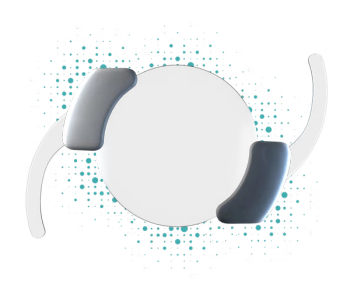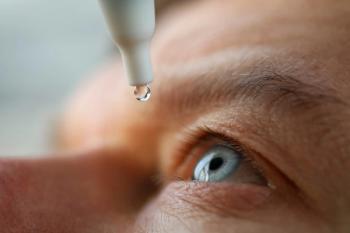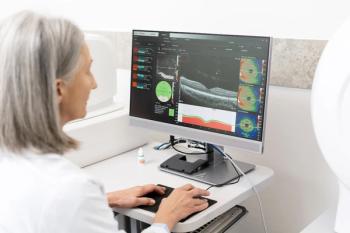
Azura Ophthalmics enrolls first patient in Phase 3 clinical trial for AZR-MD-001 in patients with MGD
The trial, in part of the ASTRO study, will evaluate the efficacy, safety, and tolerability of sterile ophthalmic ointment 0.5%.
Clinical-stage biopharmaceutical company Azura Ophthalmics announced that the first patient has been enrolled in the company’s Phase 3 clinical trial for its Assessment of Secretions and Treatment for Restoring Ocular Surface Health in Patients with Meibomian Gland Dysfunction (ASTRO) study.1 The trial is aiming to evaluate the efficacy, safety, and tolerability of sterile ophthalmic ointment (AZR-MD-001) 0.5% compared to vehicle in patients with abnormal meibomian gland function (MGD) and associated symptoms of dry eye disease (DED), according to a news release.
“AZR-MD-001 has already demonstrated efficacy against a variety of clinical endpoints indicating that the product has the potential to improve the signs and symptoms of MGD for up to 6 months,” said Francis Mah, MD director of Cornea and External Disease and co-director of Refractive Surgery at Scripps Clinic Medical Group in La Jolla, California, in the release. “The ASTRO study, the second confirmatory efficacy study, will reveal important additional new findings on the use of AZR-MD-001 as a foundational treatment for MGD, and I look forward to learning more about the potential of this ophthalmic keratolytic to restore meibomian gland function in patients.”
The multicenter, double-masked, vehicle-controlled, randomized trial has 2 primary endpoints, one for signs and the other for symptoms of MGD. For signs, the endpoint is the change from baseline to month 3 in meibomian glands yielding liquid secretion (MGYLS; 0 to 15 scale) which counts the number of glands secreting liquid meibum. The symptoms endpoint is the change form baseline to month 3 in the total Ocular Surface Disease Index (OSDI) score (0 to 100 scale).1
The secondary endpoint is the change from baseline to month 3 in Standard Patient Evaluation of Eye Dryness score on a 0 to 28 scale. Secondary objectives include evaluation of the ability of AZR-MD-001 to improve additional sign and symptom measures compared to vehicle, as well as evaluation of safety and tolerability of AZR-MD-001 when applied to the lower eyelid twice a week through month 12.1
“We are pleased to enroll the first patient in our U.S.-based Phase 3 clinical trial which we anticipate will add to the growing body of evidence demonstrating AZR-MD-001’s potential as a safe and effective treatment for patients,” said Marc Gleeson, CEO of Azura, in the release. “We look forward to working with investigators and patients in advancing our goal of bringing symptom relief to people burdened by MGD and associated ocular surface conditions.”
As for treatment during the trial, approximately 500 patients will be dosed twice weekly at their bedtime for up to 12 months after a screening qualification period and meeting inclusion criteria. Patients will be randomized centrally for treatment in a 1:1 ratio. Study follow-up visits will occur on day 14, and on months 1.5, 3, 4.5, 6, 9, and 12. Patients will then exit the study around 13 months after the baseline visit, with ongoing treatment-emergent adverse events at month 12 being revisited for another 30 days after.1
Reference:
Azura Ophthalmics announces enrollment of first patient in Phase 3 clinical trial for AZR-MD-001 in patients with meibomian gland dysfunction. News release. Azura Ophthalmics. June 4, 2024. Accessed June 5, 2024. https://azuraophthalmics.com/press-releases/azura-ophthalmics-announces-enrollment-of-first-patient-in-phase-3-clinical-trial-for-azr-md-001-in-patients-with-meibomian-gland-dysfunction/
Newsletter
Want more insights like this? Subscribe to Optometry Times and get clinical pearls and practice tips delivered straight to your inbox.




























